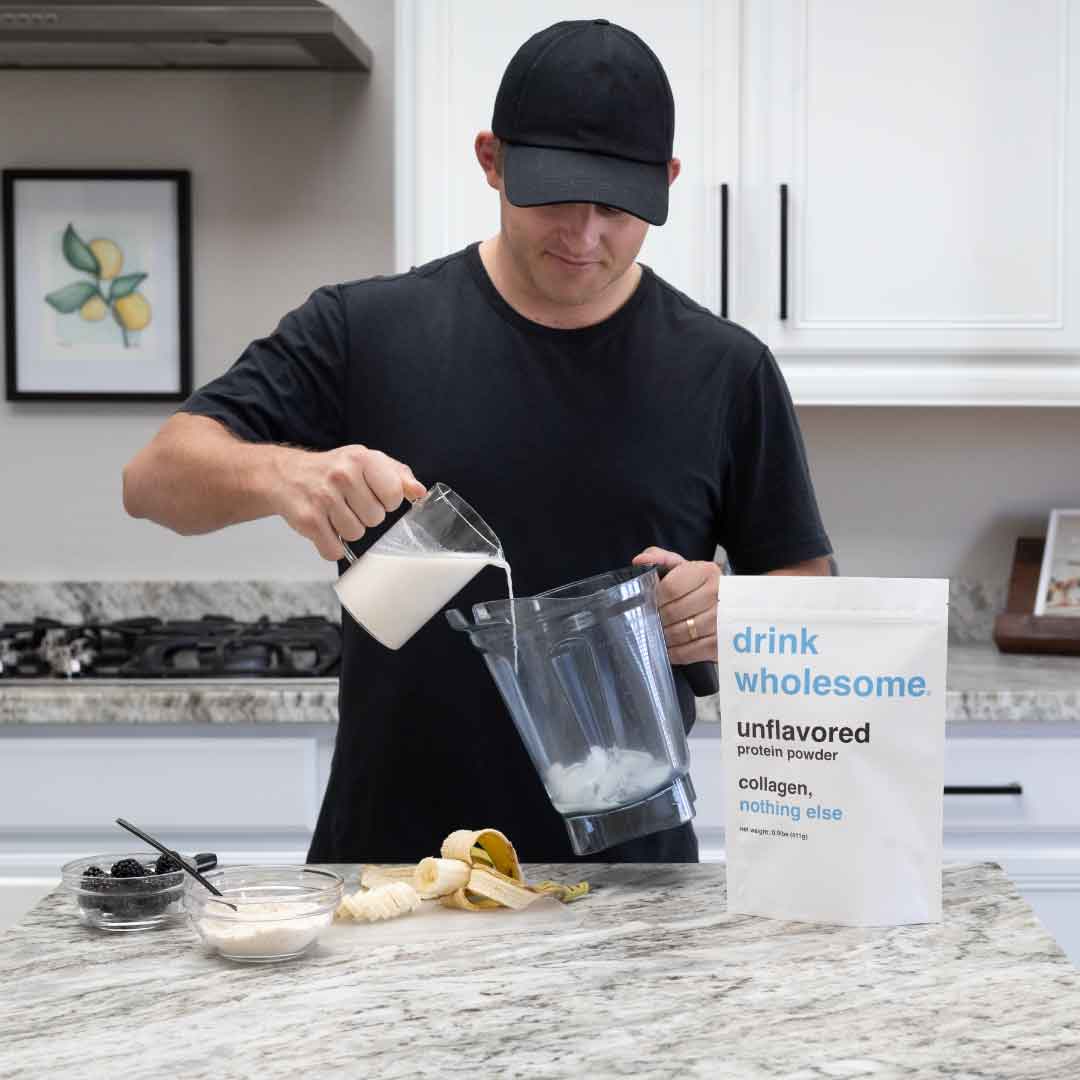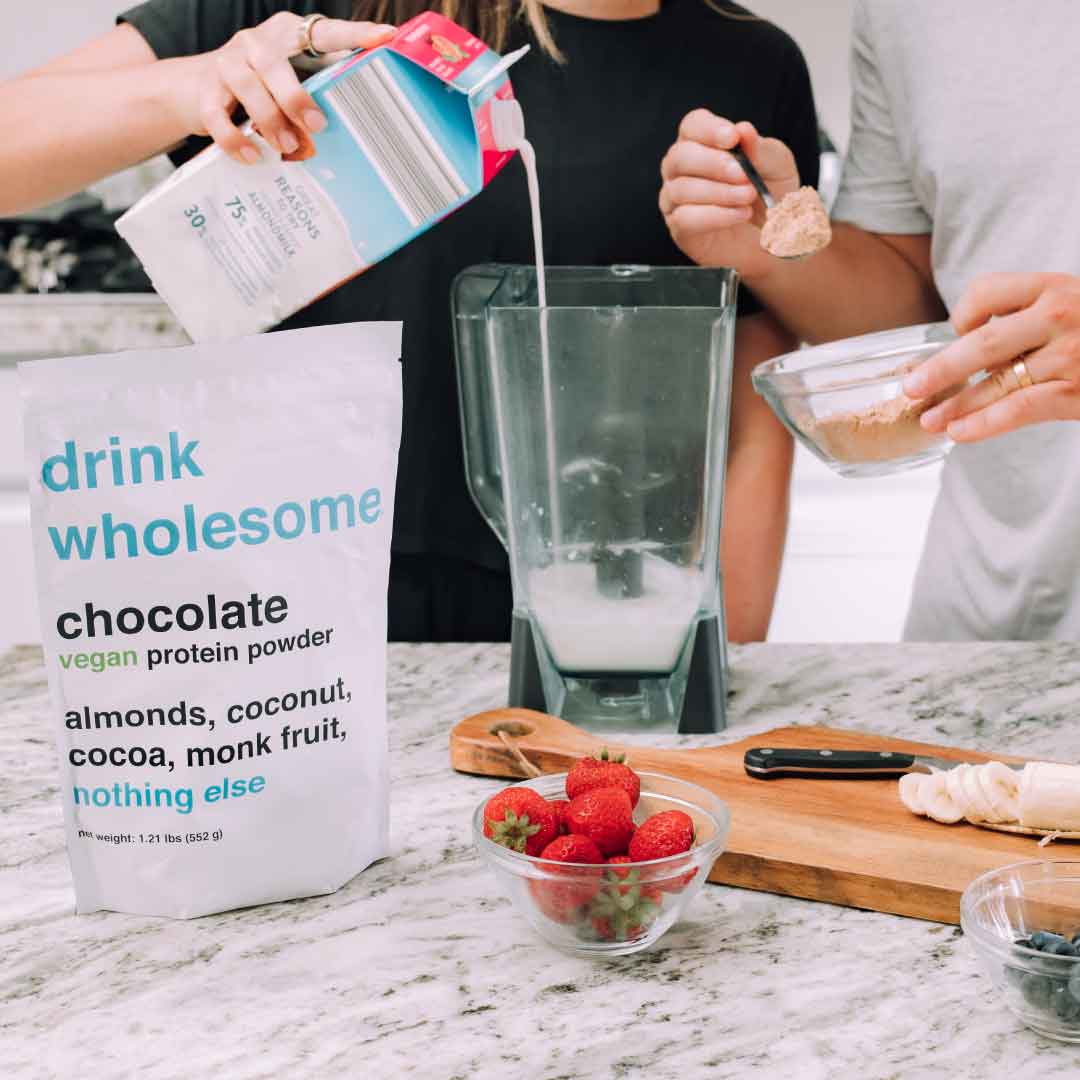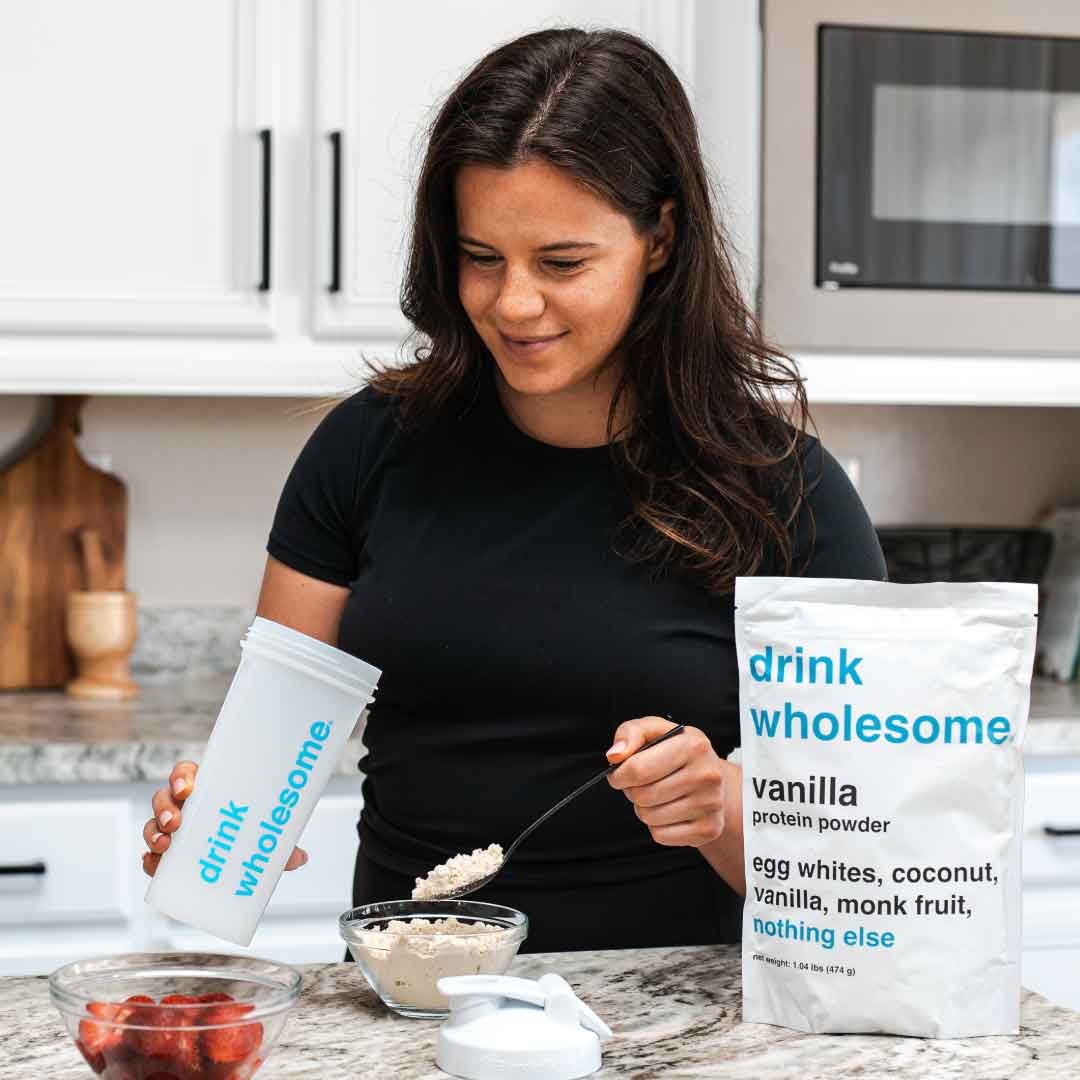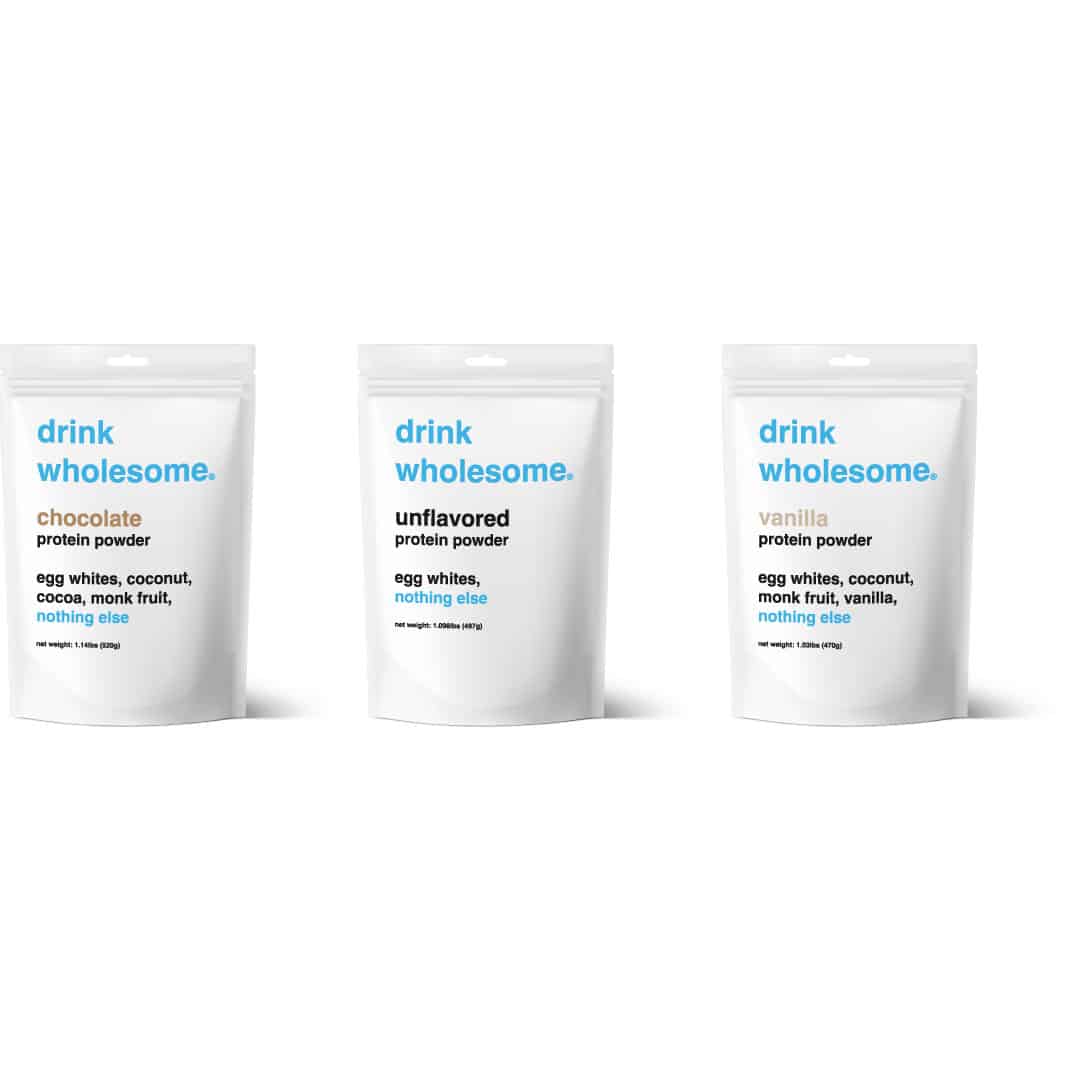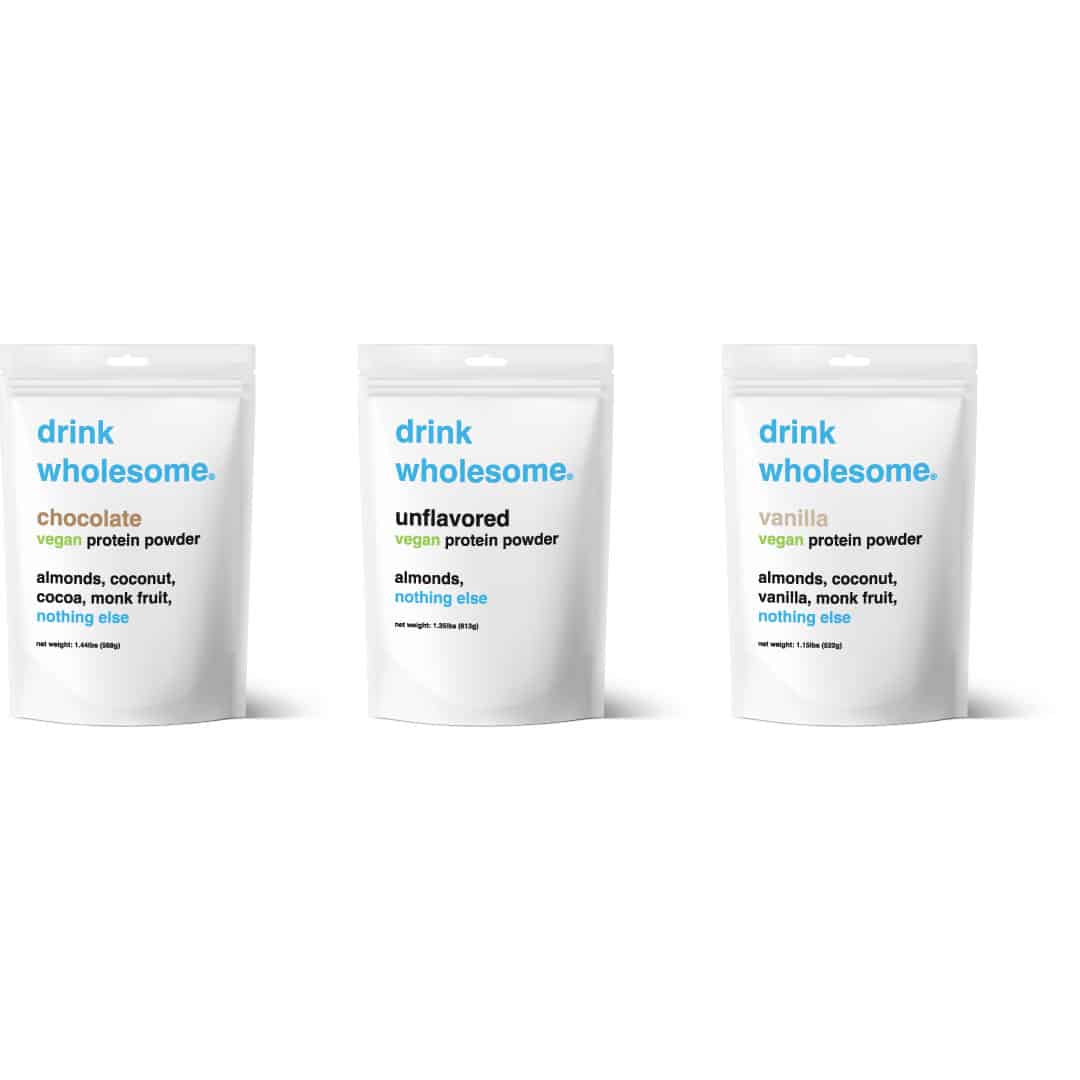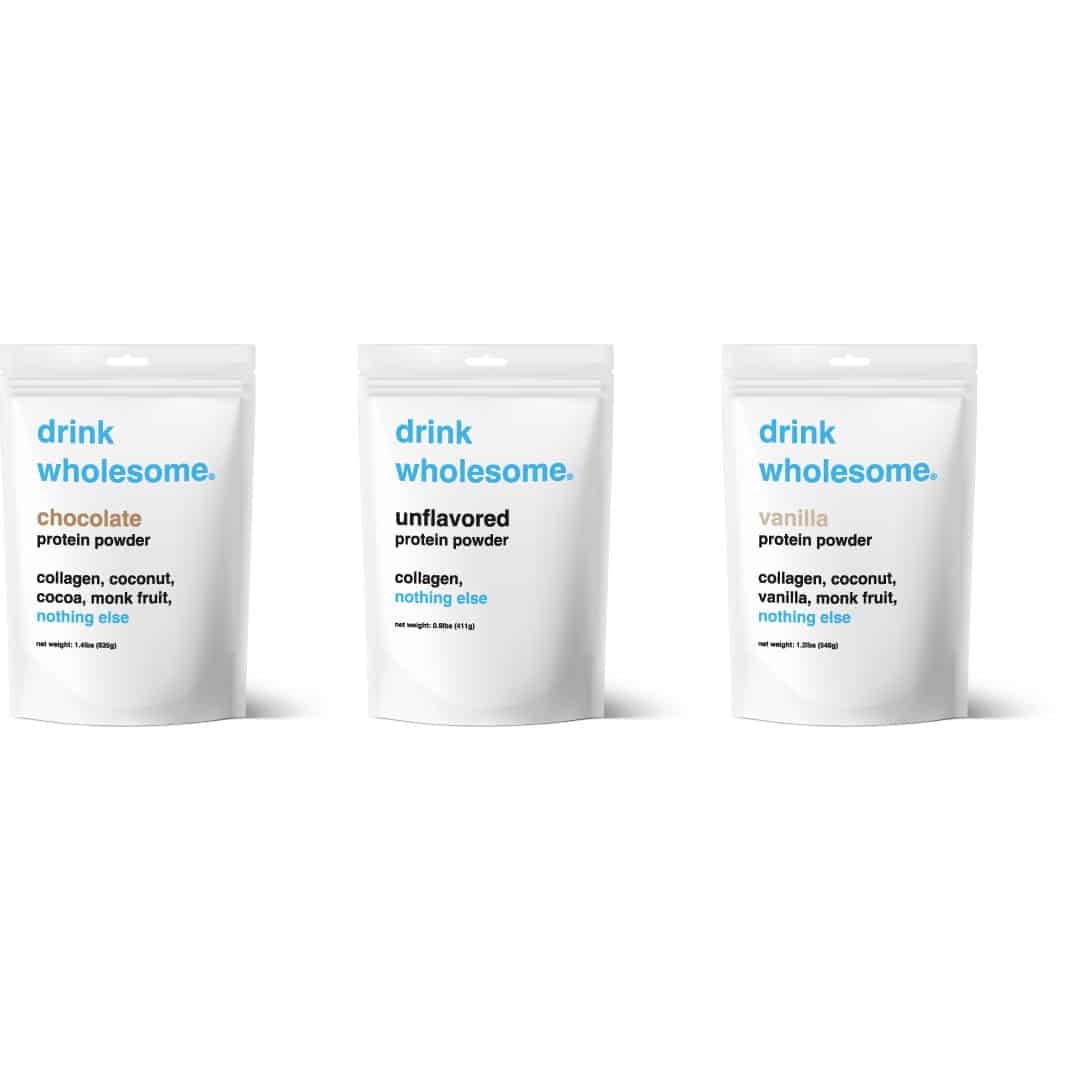How to avoid protein shake diarrhea
There are a few ingredients that, when avoided, decrease the likelihood of protein shake diarrhea and other digestive issues.
Avoid food additives
Food additives like emulsifiers, thickeners, and flavors tend to draw water into the colon, thereby increasing the liquid content of the stool. This happens because additives are hard to digest and create a high osmotic load. When the osmotic load is high, there is more osmotic pressure, which is the pressure exerted by a solvent (usually water) as it moves across a semipermeable membrane (in this case the colon) in order to balance the concentration of solutes on each side of the membrane.
Here is a list of the most common food additives in protein powder:
acacia fiber, acacia gum, artificial flavors, ascorbic acid, aspartame, calcium carbonate, carrageenan, cellulose gum, dextrin, dicalcium phosphate, dipotassium phosphate, gellan gum, guar gum, gum arabic, inulin, locust bean gum, maltodextrin, mono- and diglycerides, ‘natural’ flavors, rice bran extract, rice dextrin, rice hulls, rosemary extract, silica, silicon dioxide, sodium alginate, sodium bicarbonate, soluble corn fiber, soy lecithin, sunflower lecithin, tocopherols, tricalcium phosphate, xanthan gum, zinc oxide
Avoid dairy-based proteins
Dairy-based proteins like whey and casein can cause protein shake diarrhea because they contain lactose, a sugar most adults cannot fully digest.
Avoid sugar alcohols
Artificial sweeteners and sugar alcohols also resist digestion and can therefore have a laxative effect. Common artificial sweeteners include sucralose and acesulfame potassium. Common sugar alcohols include erythritol, sorbitol, and xylitol.
Limit insoluble fiber intake
Insoluble fiber adds bulk to the stool, so if you eat a lot of it at once, it can cause diarrhea. Most vegan protein powders naturally contain insoluble fiber. Some protein powders, especially those intended to help with weight loss, contain added insoluble fiber. Note that in many cases, this added fiber is xanthan or guar gum, which happen to also also used as laxatives!
Be mindful of preexisting gut issues
When you eat dietary protein, it enters the stomach where stomach acid and enzymes start to break it down into smaller components. From there, the partially digested proteins move to the small intestine, where enzymes called proteases break them down into amino acids. Amino acids are then absorbed through the intestinal lining and enter the bloodstream, which transports them throughout the body.
If any part of this complex process is not working properly due to preexisting gut issues, then the protein you eat will not be fully broken down and absorbed. Not only will this deprive you of the amino acids you need to stay strong and healthy, but it can also cause painful side effects like diarrhea.




